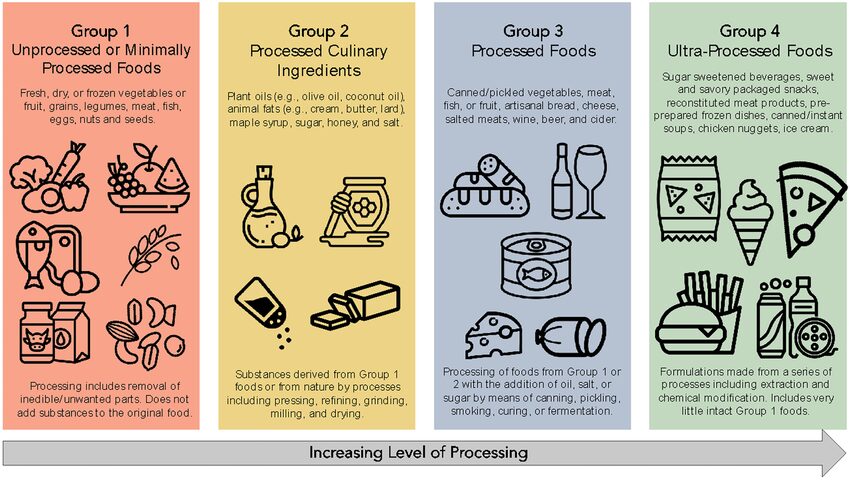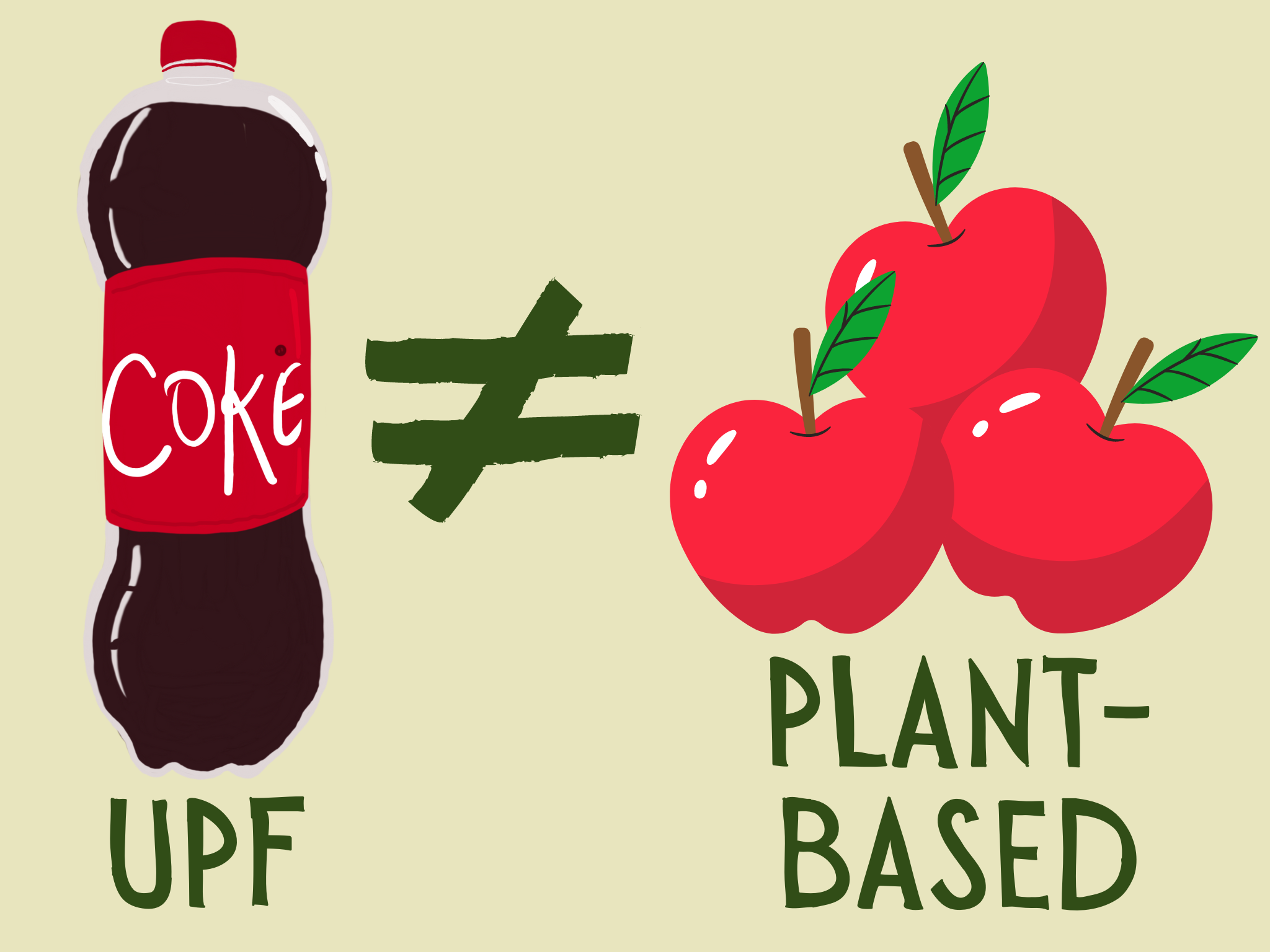53% of Brits Want Taxes on Ultra-Processed Foods, But Separating Them From Plant-Based is Crucial
6 Mins Read
A majority of UK residents would support a tax on companies that make ultra-processed food. With rising costs for the NHS, it’s important to note vegan food can be the solution, not the problem.
As ultra-processed foods (UPFs) continue to creep into consciousness and our bodies, consumers in the UK are calling for government action to combat the country’s obesity issue.
A new 2,136-person survey by Ipsos for the UK’s Health Foundation has found that 53% of Brits are in favour of a tax on companies that produce UPFs, if some of the revenue is directed to funding fresh fruits and vegetables for low-income families.
Similarly, 58% support a tax on foods that are high in sugar and salt, as long as some of the revenue helps provide fresh produce to low-income households.
In the UK alone, UPFs make up 57% of an average person’s diet, and up to 80% when it comes to children or people with lower incomes. Likewise, around two-thirds of calories consumed by adolescent Brits come from UPFs.
One in three children in Britain are overweight or living with obesity by the time they leave primary school, while over a third are at risk of developing a food-related illness in the future. Meanwhile, 95% are exceeding the daily recommended amount of sugar, and 66% are doing so for salt. And only 9% are eating enough fruits and vegetables.
The new Labour government has promised to clamp down on obesity by banning junk food ads on TV before 9pm (something 61% of the survey’s respondents support) and the sale of energy drinks to people under 16.
Whether it enforces a tax on UPFs – a la the soft drinks levy introduced by the Conservatives in 2018 – remains to be seen. But the conversation around UPFs needs to be more nuanced, especially when you consider plant-based food, which can help the cash-strapped National Health Service (NHS) tremendously.
The problem with linking UPFs, nutrition and plant-based meat

A quick recap: UPFs are part of the Nova classification, which categorises food into four subgroups, based on the amount of processing (it has nothing to do with the nutrition aspect of a food). UPFs are at the bottom rung of the ladder, comprising industrial formulations and techniques like extrusion or pre-frying, and cosmetic substances like high-fructose corn syrup and hydrogenated oils
Broadly speaking, this can include anything from ice creams, cereals and flavoured yoghurts to hot dogs, fizzy drinks, and plant-based meats.
But the conversation around veganism and its link to UPFs has been at best unfair, and at worst dangerous. Many have misinterpreted the idea that just because a food is ultra-processed, it’s unhealthy. A swathe of media outlets have taken that cue to denounce meat analogues, something that heightened after a recent study by the São Paulo University and Imperial College London.
The researchers labelled UPFs as a cause of heart disease, and headline writers jumped on the fact that this analysis included vegan meat analogues – notwithstanding the fact that these only made up 0.2% of the foods in the study, or that these were products that existed in 2010. In reality, the UPFs that were linked to cardiovascular disease were packaged breads, cakes, and biscuits.

One widely cited review linked UPFs to 32 harmful health effects. But many other UPFs, like cereals, dark or whole-grain bread, packaged sweet and savoury snacks, fruit-based products, and yoghurt and dairy-based desserts were inversely associated with ill health in the same study. Most of these products are technically plant-based.
These studies highlighted a key fallacy of the UPF nutrition debate. What really classifies as UPFs? According to the Imperial College/São Paulo research, beer, wine, pasta, cereals, table sugar and cheese were all non-UPFs, but tofu – made in a similar manner to many cheeses – somehow was deemed ultra-processed.
Marlana Malerich, co-founder at the Rooted Research Collective and a food systems researcher with expertise in UPF, told Green Queen in June that even experts disagree on the Nova system: “A study found only around 30% agreement on the placement of foods within Nova categories among food experts, suggesting the food categorisations used across studies almost certainly use different criteria for different foodstuffs.”
Plant-based foods can benefit the NHS

It is true that many UPFs aren’t good for you. I don’t think any manufacturer of a mass-produced cola drink or ice cream would disagree with that.
But as Malerich told Green Queen in March, it doesn’t mean every UPF is bad for you. “It’s crucial to recognise the limitations of the Nova system, which does not account for nutritional content, leading to potential misclassification,” she explained.
This is why Dr Chris van Tulleken, author of Ultra-Processed People – the book that amplified the conversation around UPFs last year – said a blanket tax on UPFs would be wrong and harmful.
“We can regulate individual products much more effectively,” he told the Guardian. “The companies that make UPFs privatise the benefits and externalise all these costs so whether we like it or not, we will have to pick up the bill.”
Another organisation burdened with a huge bill is the NHS, which spends £98B a year on obesity, including £6.5B on treating illnesses associated with being overweight, like heart disease, cancer, type 2 diabetes and joint problems.
Research by the UK’s Office of Health Economics has estimated that if England were to adopt a completely plant-based diet, the NHS would see a net benefit of up to £18.8B a year. The health service has embraced meat analogues, partnering with Quorn – whose products are technically UPFs, but nowhere near as bad for you as processed and red meat, which have been classed as carcinogens by the WHO – for blended burgers and sausages.

One modelling study, meanwhile, shows that a ‘plant-based by default’ approach could save the NHS £74M annually, with significant household savings too if patients are supported in making dietary shifts.
And 35% of Brits would support the NHS going fully vegan, though the same number are okay with patients being served processed meat. This highlights the conundrum: there’s a lot of paradoxical information, and consumers are understandably confused.
A quarter (24%) of respondents to the Health Foundation survey are against a UPF tax. A levy on these foods will have its advantages, but as van Tulleken suggested, it will only work if individual products are taxed.
Coke is plant-based. So is an apple. They’re not the same thing.



